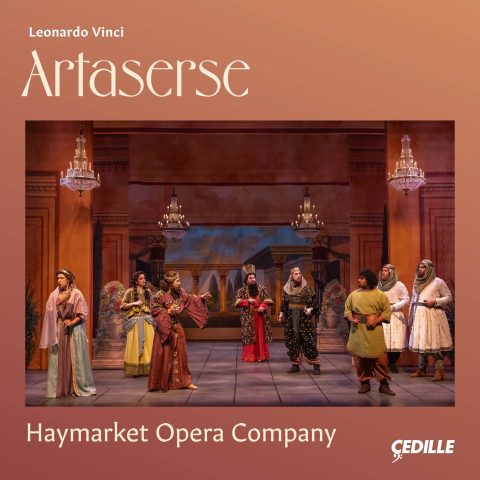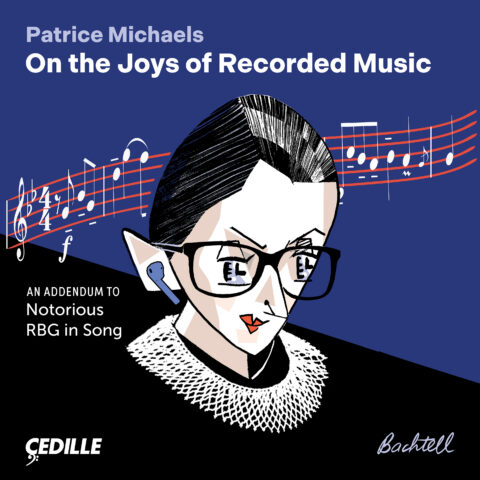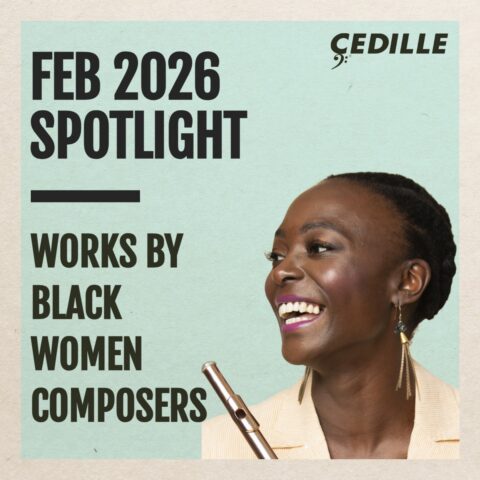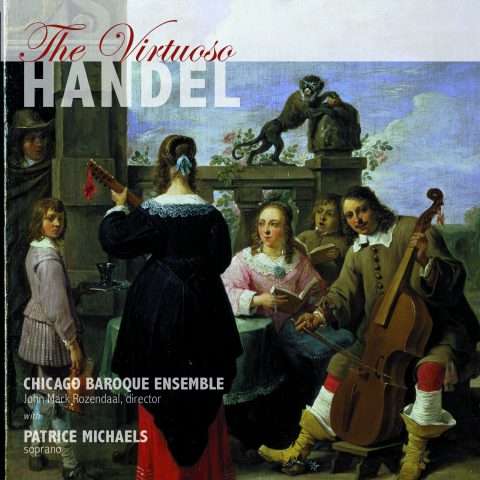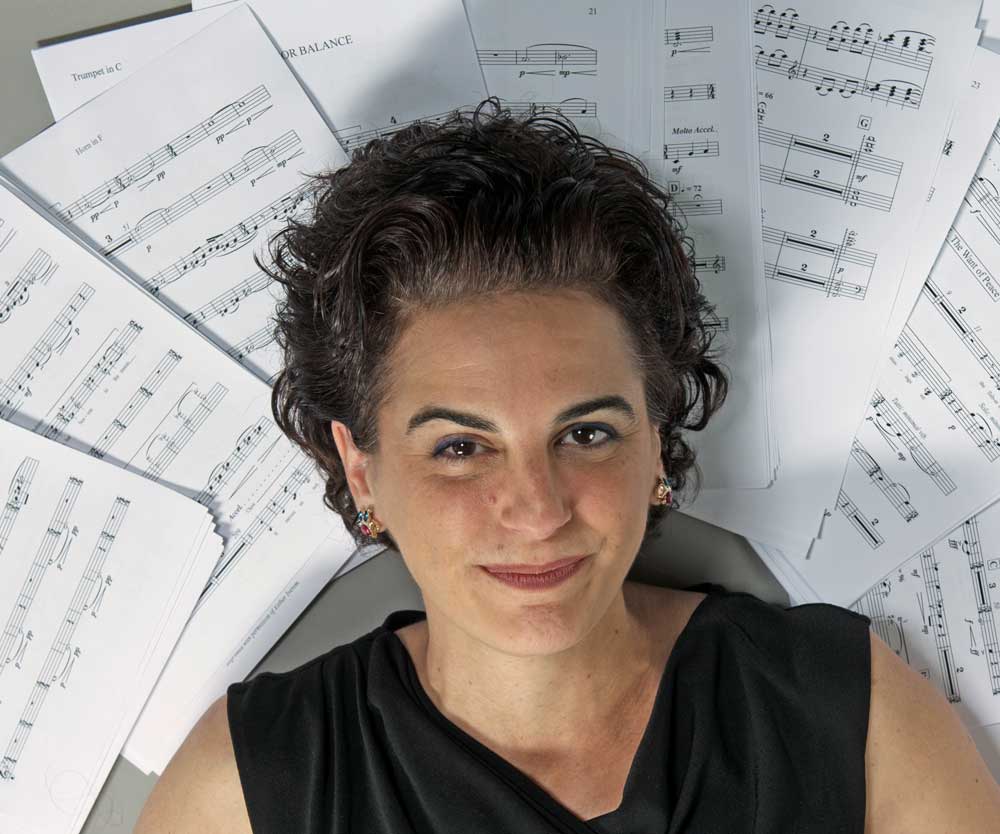
Discover
Cedille’s Take 10: Stacy Garrop

Welcome to a new series of blog posts from Cedille Records! Take 10 will feature interviews with Cedille Artists. This interview took place on Friday August 14, 2014, the release of date of Illuminations by the Avalon String Quartet featuring an original composition by Stacy Garrop. For more information, view the album page here.
1. What is your most recent project and what sparked your interest in it?
My most recent project is Mythology Symphony, but another recent project is the album Illuminations, which was just released yesterday. This project began as a commission by Nicholas Yasillo for his wife, Susan. The three of us met over lunch to discuss different ideas for the composition. We quickly arrived on a conversation about Books of Hours, which were popular devotional prayer books for laypeople during the middle ages. It was clear that Susan found these prayer books fascinating, particularly the Hours of Catherine of Cleves, which is a lavishly illuminated manuscript from the 15th century, now housed at the Morgan Library and Museum in New York. (To see the images that inspired Stacy’s work view the album booklet here).
After this meeting I researched Books of Hours and some of the history surrounding them. I then settled on several images and prayers from the Hours of Catherine of Cleves that I wanted to work with. I also decided that I wanted to compose the piece as a narrative that follows opening the book, reading through several prayers (bringing about both reflection and transformation), and finally closing the book. I’m happy with the final piece and so pleased with Avalon String Quartet’s performance of it.
The collaborative aspect of this project was great. I really enjoy working with Avalon and always enjoy the active role I get to play when recording with Cedille. As a composer, you often don’t have a lot of control over who records your work or how it is performed. With Cedille, I get to be involved in the recording process—it’s really wonderful.
2. What will classical music look like in 100 years?
It’s really difficult to say. Classical music has changed drastically just in the past few years, especially with both the rapid move to digital and the resurgence of LPs. Orchestras in particular have struggled in recent years. I think that there will always be high quality recordings—artists need them to promote themselves and people want ready access to music. And there will always be concerts. People want to feel the energy of musicians. I think we’ll continue to see more interaction between musicians and audiences and more multimedia performances.
3. What makes the Chicago classical music scene so special/important/interesting?
The music scene in Chicago has exploded in the last 10 to 15 years. I was at the University of Chicago for graduate work in the mid-1990s, then left to do further graduate work at Indiana University. When I returned to Chicago in 2000, the musical scene was so different! Chamber music groups in particular are abundant—groups like eighth blackbird and Pacifica Quartet. We have organizations, for instance the Chicago Opera Theater, that are willing to try new things, eager to incorporate new media. Chicago is a fantastic place for new music and has many excellent musicians.
4. What are you listening to right now?
Mumford and Sons, their first and second albums. The have a unique sound and their songs often end somewhere other than were they began. They also play with how they tell a story and how much they reveal about a narrative. In general, I mainly listen to classical music (both old and new), but I’m enjoying listening to their unique folk sound right now.
5. If you weren’t a composer or a musician, what would you be?
I have wondered about that for a long time, especially because I don’t know if I would have become a composer if I had gone to a different high school (I was slated to go to a high school that didn’t have as a developed music program as the one I actually attended). I love photography, so maybe I would have become of photographer. I did think about pursuing stage directing in college because I thought it would be really interesting to work on interpreting music visually. There was a time when I thought about being a lawyer, but that was short lived. Ultimately, if I weren’t a composer, I probably would have still pursued something creative.
6. Was there a formative moment for you as an artist?
One of my more formative moments was a concert given by the Civic Orchestra of Chicago in 2000. I was one of three young composers that won a competition through the Chicago Symphony Orchestra; the prize was a concert by Civic Orchestra of Chicago’s showcasing our works.
There are two ways in which this performance was formative. First was the format of the concert. Each piece was performed twice. Before the second performance of my piece, I was invited to the stage to speak to the audience—so I was able to tell them what was important to me and provide insight into what they should be listening for the next time around. Augusta Read Thomas was the composer-in-residence at the time and responsible for formatting the concert in this manner. I found it to be both an interesting and enjoyable way to engage with the audience. It’s important to think about how to format concerts for modern audiences, who often desire more connection and less of a fourth wall. This concert helped open me to the full range of possibilities available.
The second way in which the concert was formative was the experience of hearing one of my first orchestral works, “Thunderwalker,” performed by a full orchestra. It was a lot to take in. Computer programs had been around for a while at that point, but even today, these programs cannot give you a full idea of what a piece will sound like. I was very satisfied with the piece; I felt like I had achieved balance in the orchestration and that “Thunderwalker” was a mature work. Furthermore, the Civic Orchestra of Chicago gave an excellent performance of the piece. I think it’s still one of the best performances ever done of it.
7. If you could have a super power, what would it be?
Flying! I sometimes have dreams where I’m flying and they’re really fun. I recently had a dream in which I turned into a flying dragon—that was new.
8. What is one thing Cedille listeners would be surprised to learn about you?
I love hiking. I’ve hiked many mountains in Colorado, including a 14,000-foot behemoth named Longs Peak. I started hiking in Colorado years ago when I started participating in the Rocky Ridge Music Center during the summer. Now, my husband and I try to go hiking every year.
9. Can you tell me about your relationship with Cedille?
My relationship with Cedille began about ten years ago, when I was introduced to its President, Jim Ginsburg, through my Music in the Loft founder Fredda Hyman. My first piece recorded on Cedille was my second string quartet. My work has now been included on eight albums with the ninth, Mythology Symphony, to be released later this year. I love working with Cedille and owe a lot to the label—my career certainly would not be where it is now without Cedille. Whenever I compose a piece that I think is special, and I want to make sure is captured forever for people to hear, I can come to Jim and talk about creating a project. With Cedille, I am involved with the entire process, including the recording sessions themselves. That’s so rare.
10. What role do you think classical music plays in modern culture?
I think classical music is a champion for art music (versus commercial music, in which the composer doesn’t always have complete artistic control over what he or she writes or gets used in a final product). Classical music does participate in both but it has such a long-standing tradition as a high art form. As a classical composer, I am able to say exactly what I want on the page and, in general, art music gives us a chance to express what is most important to us. Modern culture needs to continue to have a conversation about art music—and art—in society.
Recommended
Haymarket Opera Company presents early-18th-century master Leonardo Vinci’s rare operatic gem, Artaserse (1730). A prominent figure of the Neapolitan School of opera, whose work influenced composers such as Johann Adolph Hasse and Giovanni Battista Pergolesi, Vinci’s three-act opera seria centers on the Persian prince, Artaserse, who must bring his father’s murderer to justice amidst betrayal, deceit, and mistaken identity.
Cedille Records augments its 2018 release, Notorious RBG in Song, critically proclaimed “an engrossing, episodic portrait” (WQXR) and “vivid and beautiful” (Classics Today) — with a digital single, “On the Joys of Recorded Music,” being released on March 6, in anticipation of what would have been Justice Ruth Bader Ginsburg’s 93rd birthday (March 15).
To celebrate Cedille’s release of Black Being, featuring a piece about Black Womanhood by Flutronix, the performing and composing duo of Nathalie Joachim and Allison Loggins-Hull, a playlist of works by Black women composers on Cedille.
Enjoy 25% off Cedille’s Weekly Featured Release.
